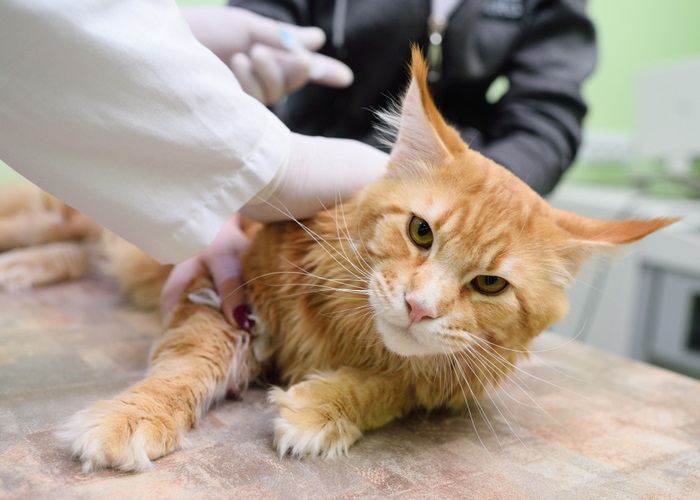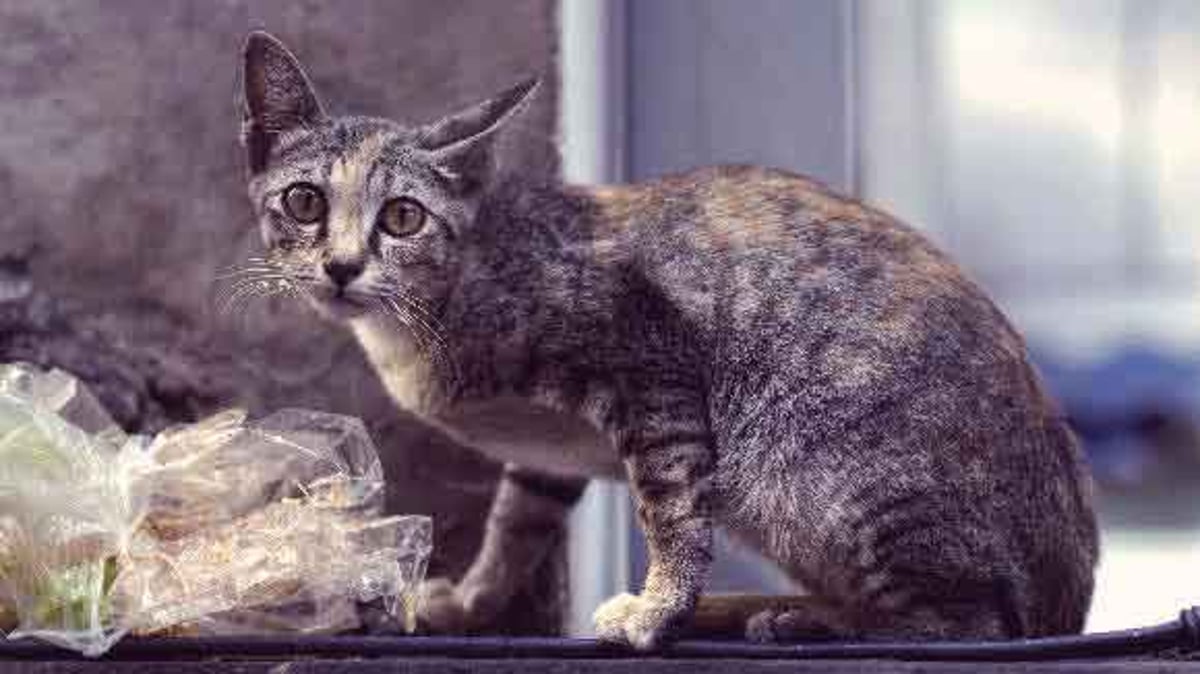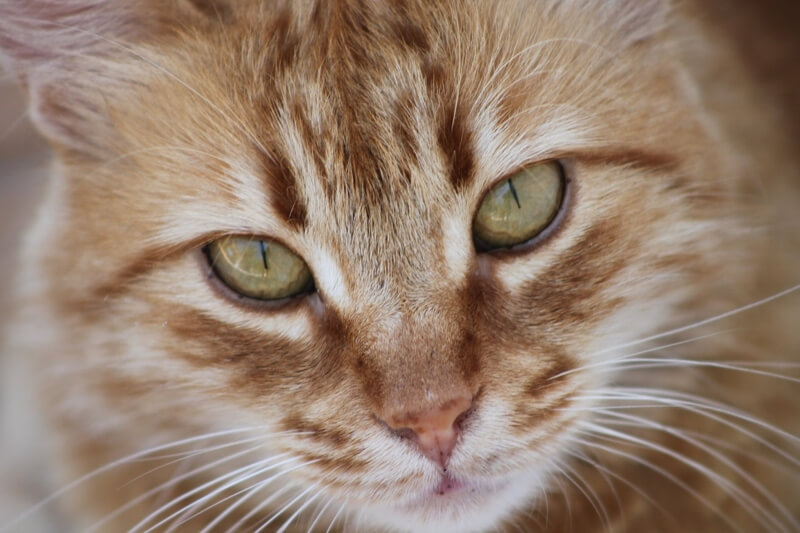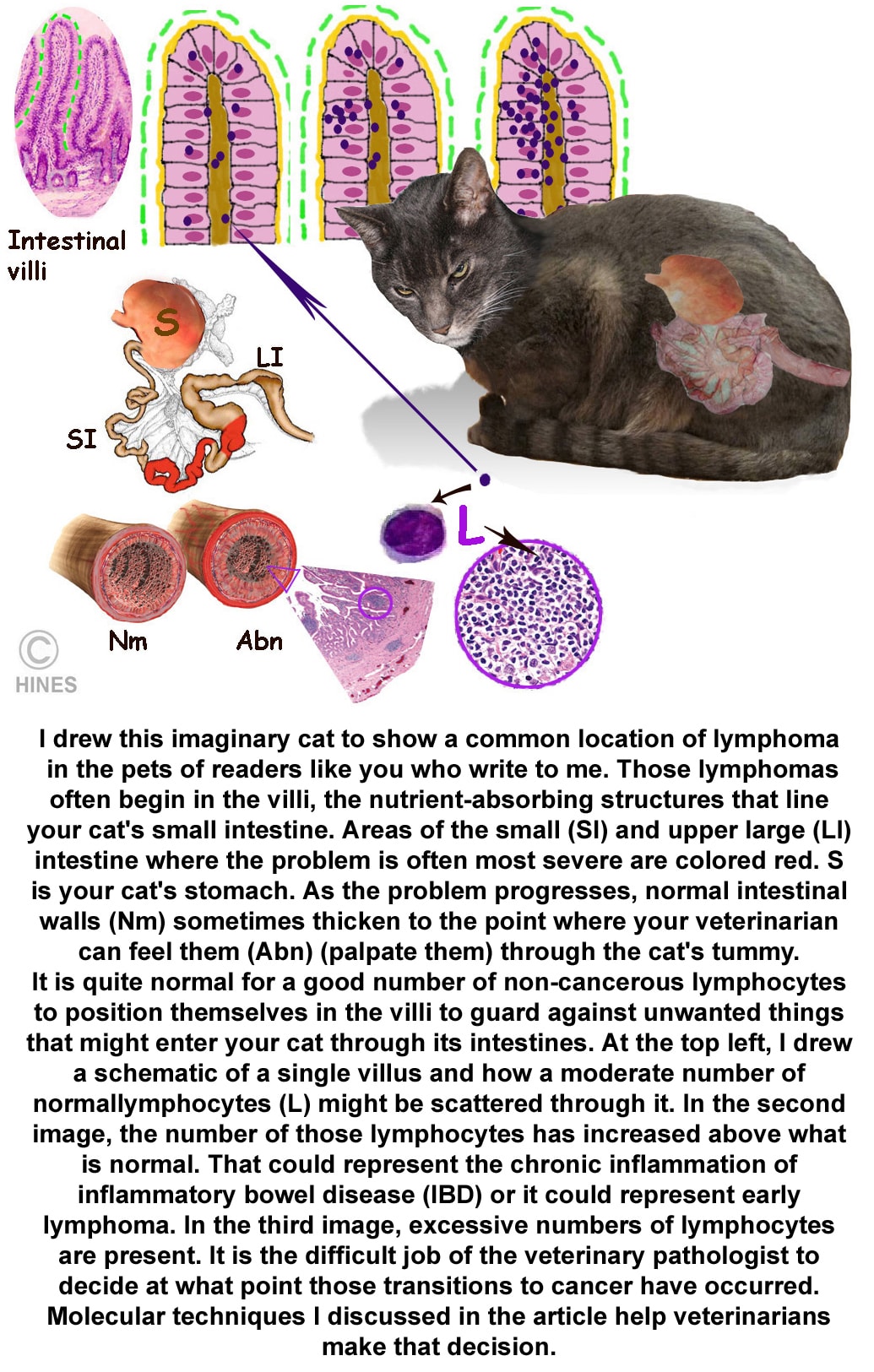intestinal lymphoma in cats diagnosis
Intestinal tumors in cats tend to spread rapidly and are usually malignant cancerous. Lymphoma is one of the most common malignancies in cats and gastrointestinal or GI lymphoma in cats is an increasingly common problem.

Blog Referral Vets In Leeds Swift Referrals
It infiltrates large portions of the intestinal tract and symptoms may appear very similar to food allergies or IBD.

. Actinically induced cutaneous squamous-cell carcinoma in cats rarely if ever metastasizes. And cats with chronic kidney disease may need a medication that helps boost production of red blood cells in addition to supportive care and a special diet for their kidneys. 54 Muscularis layer thickening is not definitive in diagnosing infiltrative neoplasia as it is also seen in cats with inflammatory bowel disease.
Serum total calcium and serum ionized calcium values are lower in cats than in dogs. Small cell lymphoma of the intestinal tract is considered an indolent disease meaning it is much less malignant than other forms of lymphoma. Small cell GI lymphoma is the most common form of lymphoma in cats.
The vet said she had a mass in her chest and. Treatment varies depending on the diagnosis. This form of cancer also called lymphosarcoma is the most common malignancy of dogs cats and humans.
Cats with this disease can be effectively treated at home with a combination of a steroid prednisolone and an oral chemotherapy drug chlorambucil and over 90 achieve remission of their clinical signs. It is transmitted between cats through the exchange of bodily fluids although usually an extended period of contact is necessary. Gastrointestinal lymphoma refers to lymphomas where the cancer appears in the small.
Signs of a possible tumor vary depending on the location. The heterogeneity associated with canine lymphoma is influenced in part by several tumor and host factors including anatomic involvement extent of disease morphologic subtype host constitution and immune competence. Malignancies typically associated with hypercalcemia include lymphoma anal sac.
One of the most common cancers we see in cats is lymphoma which is associated with the feline leukemia virus FeLV. Feline lymphoma can be found in several different sites. In general T-cell lymphoma of the chest carries a worse outcome than B-cell lymphoma of the GI tract.
Regurgitation in cats is the act of ejecting undigested food from the throat after eating. Common sites of lymphoma in cats include. Warning signs of this disease include decreased appetite diarrhea or soft stools vomiting and weight loss.
For example cats with traumatic injuries may need surgery or stitches while cats with fleas need flea treatment. The regurgitated food never reaches the stomach so the expelled food will appear in chunks of chewed up kibble. In hypercalcemia of malignancy the hypercalcemia primarily results from increased osteoclastic bone resorption but increased renal tubular resorption and increased intestinal absorption may also play a role.
FIP occurs most often in young cats under two years of age Male cats and certain breeds are suggested to be overrepresented 8910Clinical signs such as anorexia lethargy weight loss pyrexia ocular and neurological signs like gait abnormalities or abnormal mentation are non-specific 711121314The same. Alimentary or Intestinal Lymphoma By far the most common lymphoma in cats this type of lymphoma affects the gutsIntestinal lymphoma can actually be split into two further types- small cell lymphoma and large cell lymphoma. The outcome for a cat with lymphoma is dependent on staging.
In a series of 90 cats with nasal planum SCC 6 were found to have metastasis to mandibular lymph nodes and 1 to lungs 2. It suppresses the immune system and makes cats susceptible to infections and disease including causing cancers. This is by far the most common type of lymphoma in cats accounting for 50-70 of feline lymphoma cases.
13 Although the GI form of the disease is most frequently encountered few reports exist that focus solely on treatment of the GI form. As with all varieties of this cancer GI lymphoma is a disease of the lymphatic system and targets cells called T-or B-lymphocytes. The average survival time for cats with gastrointestinal lymphoma is seven to nine months.
FeLV may cause different tumours in cats mainly lymphoma and leukaemia but also other non-haematopoietic malignancies. Lymphoma is very common in cats. It is most common in senior cats with the average age at diagnosis ranging from 9-13 years old.
The Emergency vet kept her overnight on oxygen and did some limited tests with the diagnosis of lymphoma. This term describes lymphoma that affects the gastrointestinal tract. Gookin JL Stauffer SH Levy MG.
Identification of Pentatrichomonas hominis in feline fecal samples by polymerase chain reaction assay. My beautiful 14 year old kitty was diagnosed with lymphoma 3 weeks ago. However it has been determined that the.
Common Types of Cancer in Cats Small Cell Gastrointestinal GI Lymphoma. Feline lymphoma presents in a multitude of anatomical forms with gastrointestinal GI lymphoma being the most frequent form of presentation. Cats with feline leukemia virus also have shorter remission and survival times.
Treatment for Hyperthyroid Cats The gold standard therapy is radioiodine I 131 treatment which can cure the hyperthyroidism in most cases. Cats suffering from both diseases may need treatment for both and the diagnosis of kidney disease in a cat with hyperthyroidism can affect the cats prognosis. Canine lymphoma is a heterogeneous cancer with variable clinical signs responses to therapy and survival times.
Malignancy is the most common cause of persistent hypercalcemia in dogs and is a common cause in cats. Utility of endoscopic biopsies of the duodenum and ileum for diagnosis of inflammatory bowel disease and small cell lymphoma in cats. Scott KD Zoran DL Mansell J et al.
Feline leukemia virus is a virus that infects cats and can cause a variety of diseases in addition to leukemia. 47 Often the treatment and outcome of GI lymphoma are included with other forms of. A veterinarian may also measure the levels of the B vitamins B12 and folate in the bloodstream as IBD can hinder the absorption of these vitamins from the GI tract.
A hypoallergenic food trial may also be conducted to rule out food allergy. Much information is available information that is necessary in order to make intelligent decisions about an affected pet. She had a growth in her chest and was struggling to breathe.
A regurgitating cat will lower its head and easily eliminate food from the mouth. Intestinal lymphoma a form of cancer can be particularly difficult to distinguish from IBD in cats. Multicentric small intestinal neoplasia particularly lymphoma has moderately to severely thickened walls 53 with muscularis layer thickening FIGURE 20.
Lymphomas are among the most frequent tumours of the cat and are sometimes caused by FeLV infection Francis et al 1979a. Even though theres a vaccine for feline leukemia now we still see a number of cats that have been exposed to it and exposure greatly increases a cats chance of developing feline lymphoma. J Vet Intern Med 20112561253-1257.
Lymphoma and adenocarcinoma are two common types of digestive system tumors seen in cats. Each type of lymphoma is named for the area that it is found. In our laboratory hypercalcemia in dogs is defined when the total serum calcium is greater than 116 mgdL and the ionized calcium concentration is greater than 60 mgdL.
But digestive issues can also occur due to a tumor in the digestive tract or even cancer somewhere else in the body.

What You Need To Know About Feline Lymphoma Pet Crossings

Feline Intestinal Lymphoma Fairview Animal Hospital

Lymphoma In Cats Symptoms Diagnosis Treatment All About Cats

7 Signs Of Feline Lymphoma Petcarerx

Lymphoma In Cats Small Door Veterinary

Understanding Lymphoma In Cats

Lymphoma In Cats Great Pet Care

Algorithms Distinguishing Between Ibd And Alimentary Lymphoma In Cats Cats Cat Health Feline

Signs Of Cancer In Cats How To Tell If Your Cat Has Cancer Daily Paws

Hydrocephalus Veterinary Specialist In Las Vegas Pancreatitis In Dogs Lymphoma In Dogs Dog Allergies

Intestinal Tumor Leiomyoma In Cats Petmd

Lymphoma In Cats Atlantic Veterinary Internal Medicine

What You Need To Know About Feline Intestinal Lymphoma Vlog 98 Youtube





